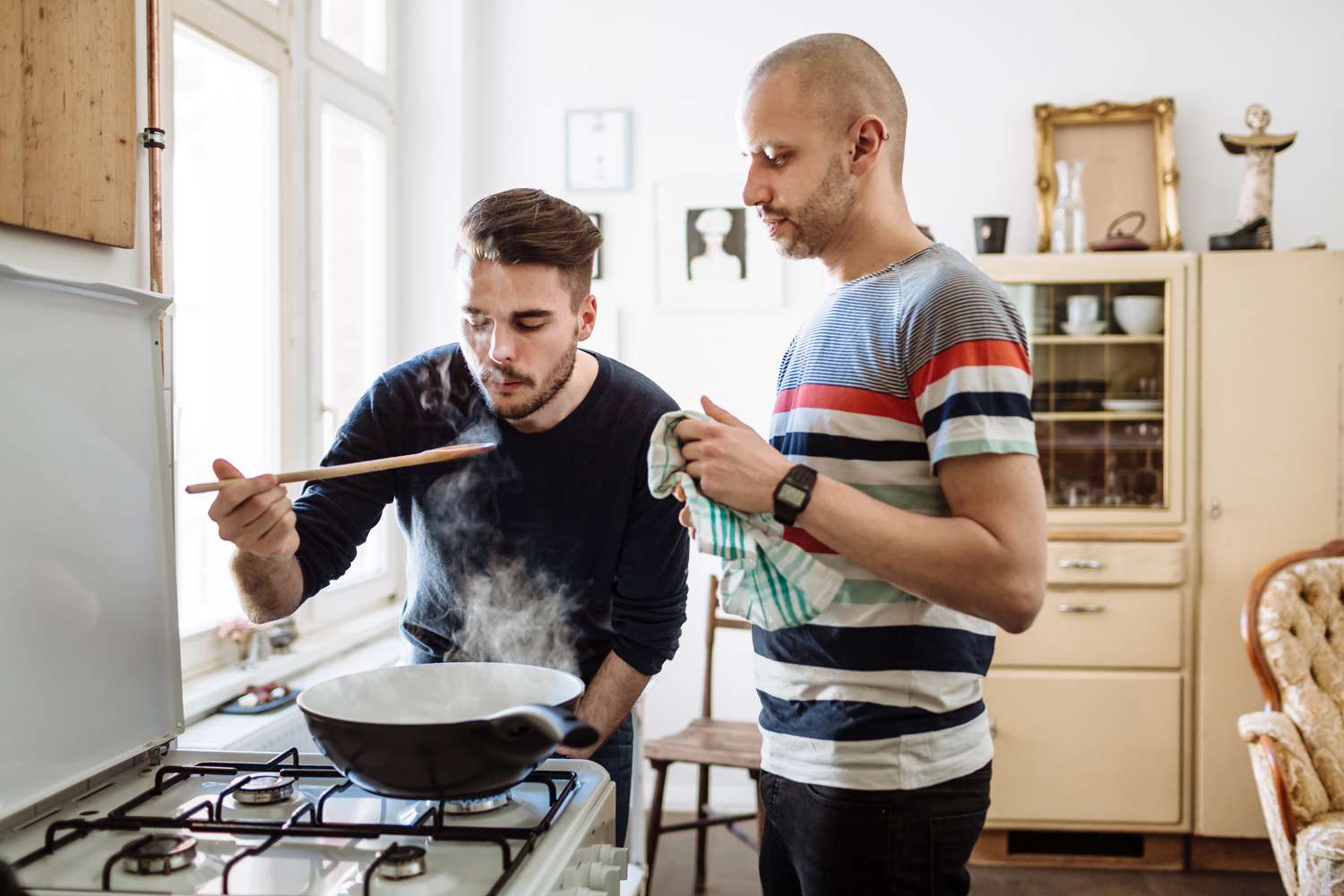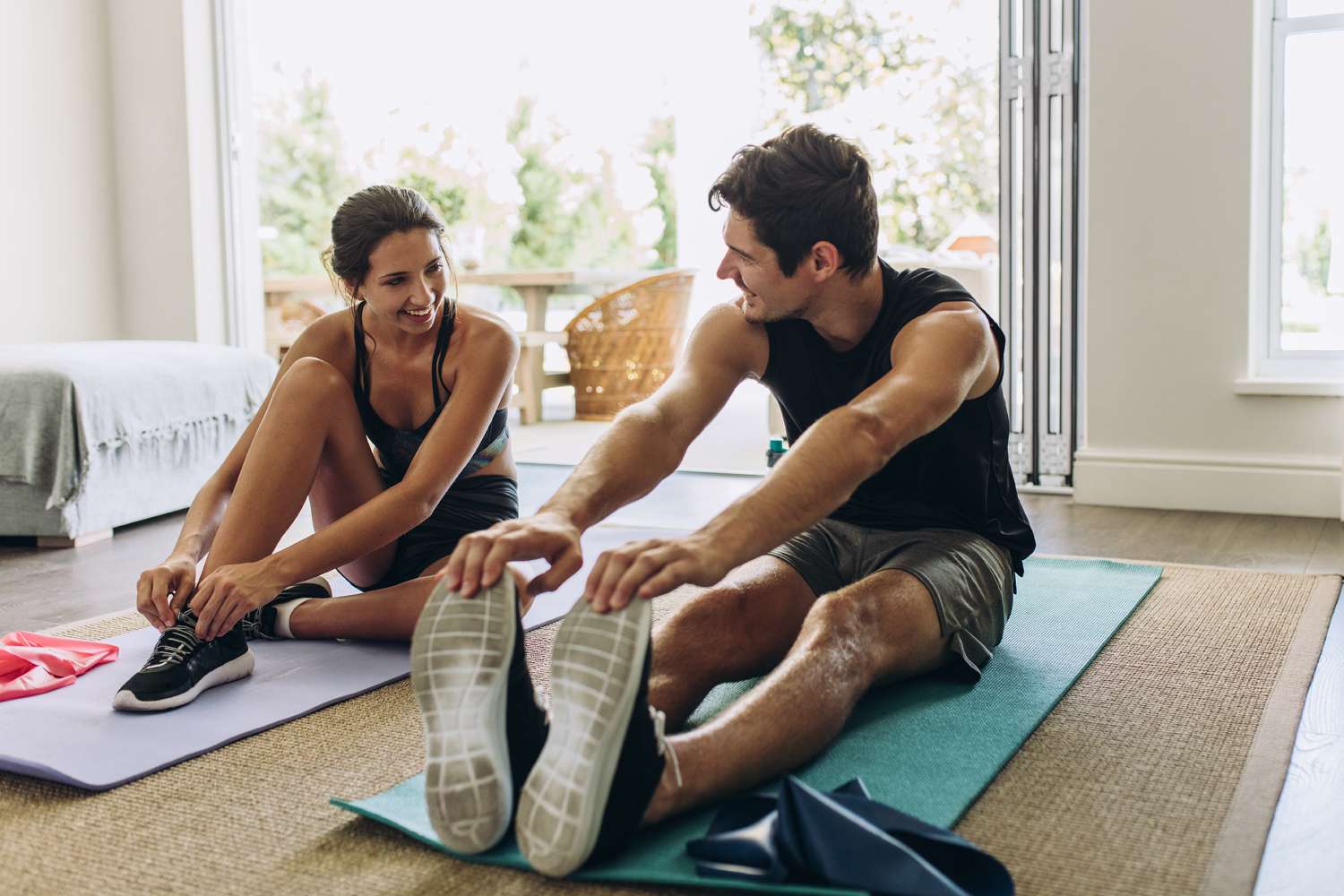
This hasn’t been the easiest year for focusing on health. The stress of juggling childcare, schooling, and work from home, combined with closed gyms and limited activities, have made it harder than ever to have a well-balanced lifestyle. At the end of the day, it’s tempting to want to flop on the couch with your partner and stress-eat together.
But six months into the pandemic, it may be time to reframe the way you and your partner think about – and encourage – self-care. “I firmly believe that marriage or partnership is the most important relationship you’ll have in your lifetime, and that can really enhance your life or detract from it,” says Dr. Renee Rodriguez Paro, a pediatric cardiologist who co-hosts a medical-focused podcast with her physician husband. “Having a partner who is committed to taking care of themselves alongside you is a gigantic, helpful force in keeping someone on the path of health and wellness.” We rounded up a few expert-approved and easy ways to keep each other healthy.

Combine Routines
Paro advises that it can be helpful for couples to be on the same routine and schedule where possible. “My husband and I go to bed at the same time, and to be on the same schedule and not feel like you’re missing something is nice,” she shares. This way, you can hold each other accountable for getting adequate sleep instead of doomscrolling on Twitter late into the night.
If jobs or other factors make it impossible to really be on the same schedule, that’s okay too. You can still be a part of each other’s routines in small ways. For instance, if you’re the earlier riser, lay out an extra multivitamin on the counter after taking yours, so that your partner will remember to take theirs when they get up.
Provide Healthy Options, But Don’t Scold
If your partner has a penchant for greasy takeout or a nightly pre-bedtime bowl of ice cream, it can be frustrating to try to stick to your own plans for fresh meals and limited snacking. But beware of lectures or arguments in this area.
“Like they say, you can lead a horse to water but you can’t make them drink,” says Paro. “The best way to guide somebody to a place where they’re making better habits is really just to model it yourself. Have the options available in the house for your partner, but don’t shame them. Let the way you feel and your results be the model, because that is how people are more likely to come around to something.”
Make light snacks to share during the day, or prepare a healthy version of your partner’s favorite dish on your night to cook. And remember that having occasional indulgences together is fun too!

Put Yourself First—and Give Your Partner Space Too
Between demanding jobs and family needs, it can be easy to run yourself ragged putting everything else besides your own health first. “We can’t expect ourselves to be continuously running on a little hamster wheel and not infusing our days with the things that help us stay balanced,” Paro says.
But here’s where you and your partner can help each other prioritize. Tell your partner whatever it is you need—an hour to get a massage, an afternoon nap, a long hot bath while everyone else has dinner—and then, actually do it for yourself. “Be very vocal about what you need to be an effective person, and explicitly ask your partner for help,” Paro advises. “And make sure you are asking them the same thing: ‘What do you need for me to do to help you be better able to take care of yourself?’ Make sure you return the favor and give your partner the space they ask for as well.”
RELATED: 15 Things to Do Today to Make Your Relationship Healther
Stay Accountable for Wellness Check-Ins Together
Set reminders on your shared calendar about wellness checks, from a self-administered breast exam to an annual skin exam with a dermatologist, so that neither of you miss a vital check-in on your current health status. It has another benefit too: Dr. Anne Peled, a breast cancer surgeon (who is also a breast cancer survivor herself!), says preventative health screenings can cause anxiety and stress, and talking to your partner about any concerns you have to may make it less daunting. In non-COVID times, “it can also help to bring your partner with you to the appointment, and even think about planning something fun to do before or after the visit to give yourself something to look forward to,” Peled suggests.

Workout Challenge
The next time you can’t agree on a Netflix show, think about turning to a workout video instead: studies show that partners can be positive influences to get moving together. “Regular exercise has been shown to lower the risk of getting a number of different diseases, including cancer, diabetes, dementia, and many others,” says Peled. “Carving out time as a couple to exercise and coming up with a workout plan together can make exercise much more fun and more likely to happen consistently.”
If you’re the competitive type, set up a challenge—see who can log the most miles jogging each week, or do a plank challenge together. If friendly and low-key is more your style, that’s fine too—workouts don’t have to be intense and miserable to be effective. Bike to dinner together, and you’ll fit in a workout plus spend more time together. Just make sure to do it regularly.
“People are much more likely to be successful at sticking to a new health or lifestyle change if they have the support of their partner,” Peled says. “You can encourage and support each other by creating goals and rewards for when you’ve reached them as well as health challenges to do together.”
Source: Read Full Article
